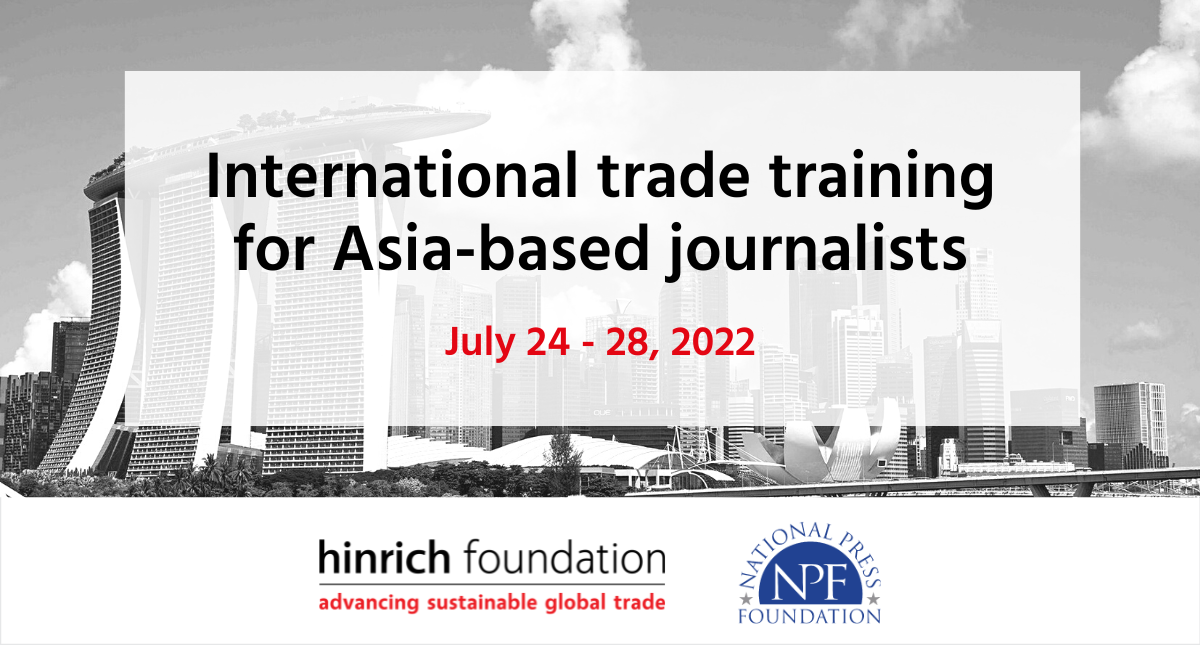Techno-Nationalism & the Perfect Storm of Geopolitics, Climate Change and COVID
Published 02 August 2022
For the past 30 years, the answer to "what's your growth strategy?" has been one word: China. Now, all of that is changing, says Alex Capri, Research Fellow at the Hinrich Foundation.
Watch the webinar:
The pandemic and the US-China rivalry have uncovered the vulnerabilities in the global supply chains. Corporations are remaking their sourcing and manufacturing arrangements as they seek to reduce risk, diversify their supply chains and deal with export controls and other geopolitical disruptions. The perfect storm of COVID, changes in the US-China relationship, export controls, reshoring and climate change are upending global trade arrangements – and journalists should expect more upheaval to come, trade expert and Hinrich Foundation Senior Research Fellow, Alex Capri told NPF’s international trade fellows.
The vast and complex global value chains that linked China and Southeast Asia with commodity producers all over the world have been efficient and profitable. But according to Alex Capri, that era of hyper globalization, may be gone for good- companies are already beginning to move and duplicate supply chains, opting for resilience over efficiency. In his session with International Trade Fellows, he suggested that global trade may see an increase in the future, but global value chains are fragmenting.
About the NPF International Trade Fellowship 2022
The National Press Foundation in collaboration with the Hinrich Foundation welcomed 22 Asia-based journalists to its International Trade Fellowship in Singapore last month. The five-day workshop, held at the Foundation’s offices in Singapore, touched on digital trade, trade agreements, and U.S.-China trade friction among other issues. The NPF International Trade Fellowship is part of an ongoing program of trade training for journalists and awards for trade coverage, sponsored by the Hinrich Foundation.
© The Hinrich Foundation. See our website Terms and conditions for our copyright and reprint policy. All statements of fact and the views, conclusions and recommendations expressed in this publication are the sole responsibility of the author(s).


